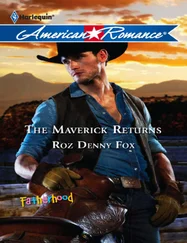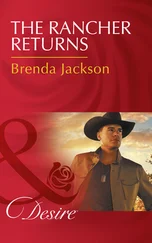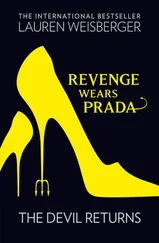Michael lifted his half-full water glass. We did it, Pop, he thought. We won.
“God almighty,” Clemenza said, red-faced from laughter and pointing a fat thumb at Fratello, who was racing around the stage like some frantic pillhead. “He’s something, eh?”
“Something,” Michael said.
Fontane had held back, doing quiet numbers and joking around in the ones that would have made him push his voice, but the brilliance he exuded even when he wasn’t trying-maybe especially then-was a thing of beauty. He was a punk, but he was an artist, too. Michael couldn’t be talked to the way Fontane had this afternoon, but by the same token he couldn’t stay mad at the guy.
Fratello? An embarrassment. Here was a guy who’d knocked around for years as “the cafone on the saxophone.” Then he’d put down the sax, started singing like a Negro but with a mamma-mia Italian accent, married a leggy blonde half his age, and bam: Buzz Fratello and Dotty Ames, stars of The Starbright Soap Variety Hour.
Fratello finished the set by sprinting across the stage, diving to the floor, sliding ten feet or so through Dotty’s legs, coming to a stop perfectly timed so he could roll over, look up at her crotch, and rub his eyes in comic disbelief. Fontane cracked up. Dotty helped Buzz up, and they all took a bow. The crowd rose to its feet. The singers left the stage. The ovation continued. The orchestra members kept the fanfare going; clearly, there would be an encore.
Michael felt a hand on his shoulder.
“Phone,” Hal Mitchell whispered. “It’s Tom.”
Michael nodded and put out his cigarette. Showtime. He glanced at Louie Russo’s table. Someone was whispering something in his ear, too, and when Michael made eye contact with the whisperer, the man looked away. Michael reached over and tapped Clemenza.
Seconds later-as the orchestra launched into a vampy take on “Mala Femmina” and Buzz, Dotty, and Fontane locked arms and gamboled back onstage for their encore-some of the implications of what may or may not have happened on Lake Erie, sketchy as the details were, must have dawned on Louie Russo. But by the time he peered over his sunglasses at the black velvet booth in the corner, it was empty. Even the candle had been blown out.
Nick Geraci’s head broke the surface. He gasped for air, and it surged down his arms and legs, and then he screamed. It was the first time he felt the excruciating pain from his cracked ribs and broken leg.
About a hundred yards away, a flaming oil slick marked the spot where the plane had smashed into Lake Erie. Bobbing in the middle of it were one of the wings, a big chunk of the side of the fuselage with the painted lion logo on it, and the upper half of what turned out to be Frank Falcone’s corpse.
Geraci wasn’t sure what had happened or whose fault it had been, though the pain and adrenaline made it hard to think clearly. He was tethered to reason only by his conviction that if everyone back there was dead, he might as well be. Rescue could mean death.
Through the rain he could see the haze of the Cleveland skyline. He swam away from it. North. Back to Rattlesnake Island, to Canada, a passing boat. Someplace where he could buy himself some time to work things out. Someplace where he’d have a shot at controlling his own fate. His leg felt like it was on fire with pain and his cracked ribs made it almost impossible to breathe, yet by the time the Coast Guard speedboat spotted him, Geraci was about a quarter mile from the crash site, in extreme shock, unconscious, his lungs filling with water, going down.
Concealed behind the parapets of the highest of the Castle in the Sand’s three Moorish towers and encased in a spire of mirrored glass was an unnamed, revolving ballroom where the ceremony would be held.
“I bet you’re smelling printer’s ink right now,” said Clemenza, giving Michael a gentle elbow. “You can about taste it, am I right? In the back of your throat, eh? Like oil, but worse.”
The reflection of Michael in the shiny brass elevator doors was sipping a crystal goblet of ice water. He looked like a put-together, invulnerable, slick-haired man of respect, with the wind at his back and the world by the balls.
“I’m tellin’ you,” Clemenza said. “I don’t think I ever seen your old man so-”
Michael nodded.
“Waterworks,” Clemenza said. “Only time in all the years I ever saw him like that.”
Clemenza had been the one who’d brought Michael to be straightened out, a few weeks after he returned to America from his exile in Sicily. The killings of Sollozzo and McCluskey, which had served to make his bones, had happened three years earlier. Clemenza had had tickets to a Dodgers game he’d gotten from a friend he had with the team. Second row, right behind the plate. It was the first game Michael had seen since they started letting Negroes play. He’d had no idea that this had happened, or when. He’d spent seven of the last eight years away from America, fighting and killing and in constant danger of being killed. He’d missed things. He hadn’t even been to his brother’s funeral. The Dodgers beat Chicago, 4-1.
On the way home, they stopped at what, when Michael left the country, had been the offices of a daily newspaper. One of Clemenza’s shylocks had, for the usual reasons, found himself in possession of the building. Clemenza said he needed to take a look at the place to figure out whether to rent it, sell it, or torch it. All of which was true.
When they entered the huge empty room where the printing press had been, there, in the pale late-summer light, sitting behind a long table, its blue paint peeling, were Tessio and Michael’s father. On the table were a tapered candle, a holy card, a pistol, and a knife. Michael knew what was coming: they were initiating him into the Family. After all that had happened, this was just a formality. It had been Michael’s own idea to kill those men-the man who’d arranged the hit on Vito Corleone and the crooked cop who, when he came to the hospital to finish the job, had had to settle for smashing Michael’s face. It had been his brother Sonny’s job, as acting Don, to okay those killings (Tessio had objected, saying it would be like “bringing a guy up from the minors to pitch in the World Series”). Later, Vito claimed he’d never wanted this life for Michael, but it had always been obvious he thought no one else could ever be good enough. At Michael’s initiation, his father mumbled a few unintelligible words before his shoulders started heaving. He began to sob. Clemenza followed suit. Tessio finished the job, in a combination of Sicilian and English, with saturnine eloquence. Afterward, they killed two bottles of Chianti. Vito couldn’t stop weeping. The smell of ink and grease registered on Michael, but somehow not the intensity of it. The next day, his clothes stank so badly they had to go in the trash. A week later, the building burned to the ground. Lightning, ruled the fire marshal. A month after that, the guy quit the fire department and moved to Florida. Now he fronted money-laundering operations down there-liquor stores, vending machines, real estate-and was engaged to Sonny’s widow, Sandra.
The elevator doors opened. Michael and Pete boarded it and rode it together to the top.
“Forlenza’d never clip his own godson.” Clemenza-who, on Michael’s orders, had killed Carlo Rizzi, the father of Michael’s own godson-sucked three olives off his toothpick and kept the pick in the corner of his mouth. “I also don’t think it’s possible a guy from another outfit could set foot on that fucking island without the Jew knowing about it,” Clemenza said. “I say accident.”
The best information Hagen had been able to get was that there had been one survivor. This had not been confirmed. If the survivor was one of the two Dons or one of their men, it would look better. If it was Geraci, what would happen next was hard to figure. It might or might not be possible to pass him off as some private pilot named O’Malley with no connection to the Corleone Family. Also, it was going to be nearly impossible to learn what he knew or had been able to figure out. And then there was the matter of the thunderstorm. The storm might take the blame for everything, which would keep the crash from having its full effect. But Michael was already plotting how he might use any uncertainty over the cause of the crash to his advantage. “Accidents don’t happen,” Michael said, “to people who take accidents as a personal insult.”
Читать дальше











